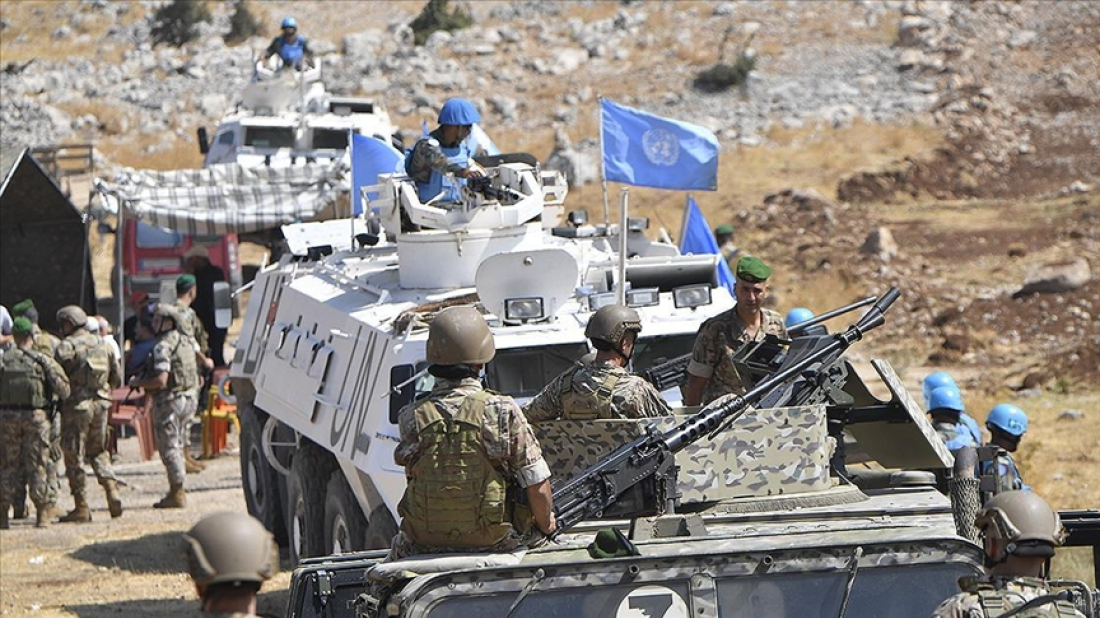Council of Europe torture watchdog raises concerns over police treatment of protesters in Georgia
Georgia is facing renewed scrutiny over alleged police ill-treatment and lack of accountability after the Council of Europe’s anti-torture body rais...

Israeli Overflights Stir Fear in Beirut
Recent low-altitude flights and sonic booms from Israeli jet fighters over Beirut have instilled fear among the city's inhabitants, serving as stark reminders of the fragile nature of the current ceasefire. These flights have not been confined to the capital; they have extended to the Matn district in Mount Lebanon and segments of the Bekaa region near the Syrian border, as reported by Lebanon's state news agency, NNA.
Anticipation Builds Ahead of Withdrawal Deadline
Local citizens are holding onto hope that Israeli forces will withdraw from southern Lebanon as the American-backed ceasefire deal, brokered on November 27, 2024, approaches its deadline. The official date for the complete removal of Israeli soldiers is set for February 18, 2025.
However, Israeli Prime Minister Benjamin Netanyahu has publicly declared his country's intention to maintain troops at five border points, aiming to establish a buffer zone to deter any resurgence of Hezbollah's presence. Reports indicate that Netanyahu is seeking endorsement from American
President Donald Trump for this extension
Lebanese officials have categorically denied any acceptance of Israel's request to allow soldiers to remain in the south. President Joseph Aoun stated on Wednesday that there is "no truth" to reports suggesting the government agreed to this demand. As part of the arrangement that ended hostilities between Lebanon and Israel, thousands of Lebanese army soldiers were to be deployed to the south, and Hezbollah was expected to decrease its presence in the area.
Prime Minister Nawaf Salam has affirmed his government's commitment to implementing all international obligations, including United Nations Resolution 1701, which mandates that the Lebanese armed forces be the sole defenders of the nation.
Hezbollah’s Post-Ceasefire Challenges
Currently, Hezbollah is confronting significant challenges following the loss of numerous young fighters and its prominent leader, Sayyed Hassan Nasrallah, who was killed in an Israeli airstrike on September 27, 2024. A Hezbollah delegation, led by MP Mohammad Raad, on Thursday extended an invitation to President Joseph Aoun to attend the funerals of the slain leader and his successor, Sayyed Hashem Safieddine. The funeral is scheduled for February 23, 2025.
The country is now placing its faith in Lebanon's national army to protect them if the situation with Israel deteriorates. The recent offensive resulted in approximately 4,000 deaths in Lebanon, including many civilians, and led to the displacement of more than 1.2 million residents, according to Lebanese authorities. It also caused billions of dollars in destruction and damage.
Many Lebanese blame Hezbollah for the devastation inflicted upon them after months of heavy bombing by Israeli planes, although the Shia community, which suffered the most, still largely supports the militant political movement.
The ceasefire has been a defining moment in Hezbollah's militant activities. The group can no longer act with impunity against Israel, irrespective of the official Lebanese government's position.
The party is now preparing for a new phase in its political history and is experiencing a crisis of purpose. Historically, it emphasized the slogan, "Army, People, Resistance." However, this equation appears to be finished, at least for now.
The drumbeats have finally faded at the Marquês de Sapucaí, bringing the competitive phase of the Rio Carnival 2026 to a dazzling close. Over two marathon nights of spectacle, the twelve elite schools of the "Special Group" transformed the Sambadrome into a riot of colour.
Peru’s Congress has voted to censure and remove José Enrique Jeri Ore from his posts as President of Congress and acting President of the Republic, just four months into his tenure, citing undisclosed meetings with Chinese businessmen and alleged hiring irregularities.
Israel is preparing for the possibility of receiving a green light from the United States to launch strikes against Iran’s ballistic missile system, according to Israel’s public broadcaster KAN.
France celebrated Olympic gold in the men’s biathlon relay in Anterselva on Tuesday (17 February), following a thrilling race marked by an electric atmosphere at the stadium.
Aghdam’s Qarabag FK experienced a 6–1 defeat to England’s Newcastle United in the first leg of their UEFA Champions League play-off tie in Azerbaijan's capital Baku Wednesday evening (18 February).
Georgia is facing renewed scrutiny over alleged police ill-treatment and lack of accountability after the Council of Europe’s anti-torture body raised serious concerns in findings published on 18 February.
A Turkish parliamentary commission on Wednesday approved a document outlining proposed legal frameworks for the dissolution of the outlawed Kurdistan Workers’ Party (PKK).
The Armenian Cabinet has approved a military-technical cooperation agreement (MTC) with Poland, which will be forwarded to parliament for ratification following its signing, according to Armenian media.
Kazakhstan has entered the world’s top 50 economies by GDP in 2026, ranking 50th with a projected nominal output of $320 billion. The result reflects sustained growth, structural reforms and the country’s rising role as a regional economic hub.
Giorgi Bachiashvili, the former head of the Co-Investment Fund founded by former Georgian Prime Minister Bidzina Ivanishvili, has been released from prison following a plea agreement with prosecutors.
You can download the AnewZ application from Play Store and the App Store.

What is your opinion on this topic?
Leave the first comment